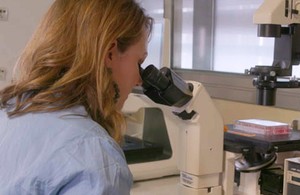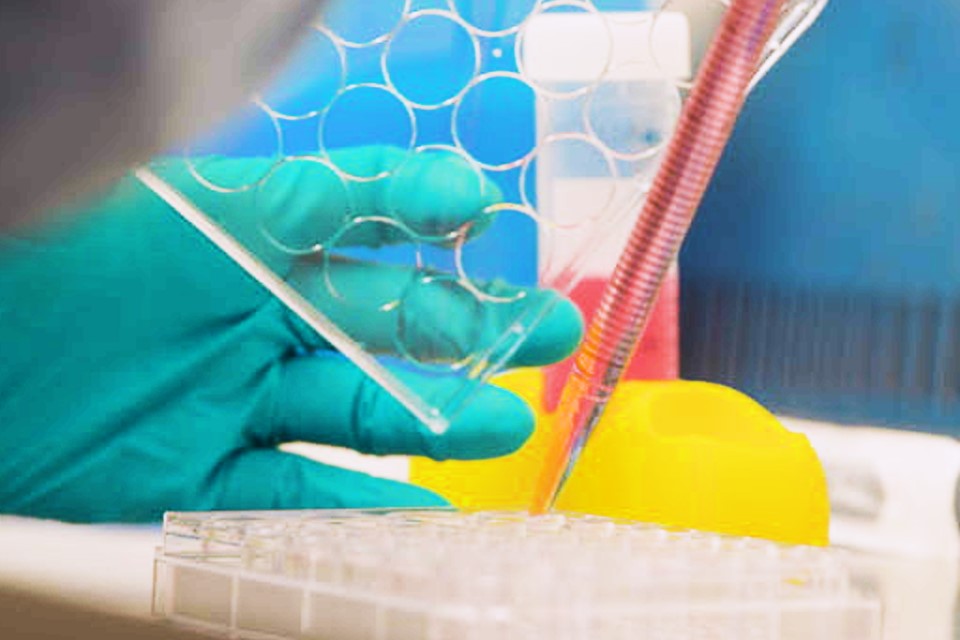Spearheading research into shockwaves to help injured soldiers
Scientist Abi Spear explains how connections are one of the most important aspects of her incredible work in regenerative medicine.

The whole way that I work really is about partnerships.
Senior Principal Scientist Abi Spear explains how connections are one of the most important aspects of her incredible work in regenerative medicine.
Abi currently leads work that involves a pioneering trial which sees small human muscles grown in a dish exposed to an explosive shockwave.
This collaborative work, with Oxford and Loughborough Universities, aims to assess the effect of a blast event on the way wounds heal (or don’t heal) over time.
The research aims to help members of the armed forces injured in combat and is one of numerous projects Abi has led in her 16 years at the Defence Science and Technology Laboratory (Dstl) which aims to help members of the armed forces injured in combat.
She said:
We do quite a lot of work with academic collaborators externally and also bringing other funders together.
I think that’s definitely where I’m at my happiest bringing a big multi-disciplinary team together.

She went on to explain that with funding from Dstl, scientists at the University of Bristol and Cambridge University are looking at how they can grow the cellular component of blood – red blood cells and platelets.
This work is about achieving a sustainable supply of blood to treat soldiers when they are injured on the front line.
Abi said:
Every now and again, you think, yeah, this is not what everyone does with their day.
It’s a real privilege to work with Dstl and I wouldn’t have been here as long if I didn’t really enjoy it
Abi is also on a part-time secondment as a liaison officer with the Engineering and Physical Sciences Research Council, part of UK Research and Innovation.
This role highlights the important relationship between Dstl and the research councils in supporting world-leading science and technology.

In 2022 Abi co-hosted the first UK Defence Surgical Research Conference at the Tower of London with the aim of more closely linking the spheres of defence and medicine.
Dstl connects its world-class people with the top minds from academia, industry and the military to make the science and technology it delivers as impactful as possible.